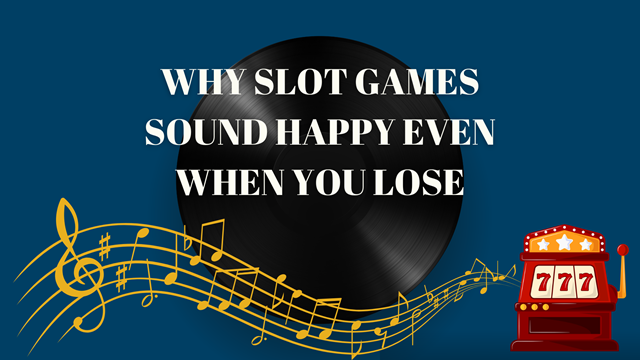Music and its impact on everyday life is a topic that is of great interest to the scientific community. Someone explores the influence of music on the psychological state of a person, someone analyzes the influence of music on motivation, others compare the psychotypes of people and their preferences in music. All this is reflected in the entertainment industry. Somewhere, special playlists are specially selected so that people get involved in the atmosphere, for example, this applies to casino games and things like 200 welcome bonus casino. But there is another aspect to the use of music. People work with it, and it is believed that it allows you to concentrate. This is proven by numerous studies that have shown that music can increase productivity, reduce stress, and even promote creative thinking.
In this article, we explore exactly how music affects the workflow. We turn to academic research that examines the relationship between music and productivity, explore which genres and types of music are most conducive to work, and offer practical tips for integrating music into your workflow. Our goal is to help you use music as a tool to improve your productivity and work environment.
Theoretical review: The power of music and its impact on productivity
Modern research is increasingly paying attention to the influence of music on the processes occurring in the human brain. Different levels and types of brain activity when listening to music lead to changes in the emotional state, stress levels and, as a result, affect overall performance and productivity.
One 2013 study found that listening to music that subjects described as “pleasant” improved attention span and increased performance. Music created a certain emotional environment that stimulated the brain.
Another interesting discovery concerns the type of music. A 2015 study found that listening to music without words significantly improved participants’ attention and concentration, especially when performing complex tasks. According to a 2017 study, pleasant music can stimulate creative thinking, which is an important aspect in many areas of activity.
Music as a Productivity Booster: In Search of the Perfect Background Sound
Music can indeed stimulate productivity. It fills the workspace, smooths out noise, and helps create a certain atmosphere that can support concentration or stimulate creativity.
Experts have found that certain genres of music, or even specific tunes, can be especially helpful. For example, classical music and jazz are often cited as genres that can help boost concentration and improve mood. This may be because these genres often include slow, steady beats and lack of lyrics, which helps reduce possible distractions.
On the other hand, some research has shown that more uplifting genres, such as electronic music or rock, may be beneficial for routine or monotonous tasks, as they can help maintain energy levels and interest.
Another interesting area of research is “focus music”, which can often be found on various music platforms. These playlists or tracks are specifically designed to increase concentration and may include meditation sounds, nature sounds, white noise, or ambient music tracks.
However, as with the theoretical review, it is important to remember that all people are different and their musical preferences can vary greatly. What works for one person may not work for another, and the best choice of music to work with will be one that suits each person’s individual preferences.
Music for relaxation and stress reduction: When sounds help you recover
Work can be stressful and sometimes you need to take a break to recover and de-stress. Music plays a key role in this process.
Several studies confirm that music can reduce stress and anxiety levels, improve your mood, and even help you sleep. For example, slow, calm music can help slow your heart rate and lower your blood pressure, which in turn can reduce stress and help you relax.
Among the genres that are often used to reduce stress are classical music, calm jazz, new age and nature sounds. These genres have one thing in common – they often include slow, relaxing melodies and little or no lyrics.
Music can also be used to promote meditation or awareness, helping you focus on your breath and be present in the present moment. Many meditation apps use music and sounds as the basis for meditation practices.
However, it is important to remember that music preferences are individual and can vary greatly. Thus, it is important to experiment and find those genres and tracks that help you personally relax and reduce stress.
Practical Tips: How to Use Music to Improve Your Workflow
Knowing about the impact of music on the work process, we can use this to increase productivity levels and reduce stress levels. Below are some practical tips for using music in your workflow.
- Choose the right genre: The genre of music you listen to can affect your level of productivity. As mentioned, fast, upbeat music can boost productivity, while slow, relaxing music can help reduce stress levels.
- Use music as a timer: Music can also serve as a break timer. For example, you can work for two or three songs and then take a short break.
- Listen to music with headphones: If you work in an office or other noisy environment, headphones can help you focus on your work and block out background noise.
- Consider your individual preferences: It is important to remember that the perception of music is subjective, and what works for one person may not work for another. Listen to music that you personally love and that helps you work better.
Music is a powerful tool that can boost your productivity and improve your mood during your work day. But it is important to remember that we are all different, and what works for one may not be suitable for another. Don’t be afraid to experiment and find the music that helps you be the most productive and happy at work.
In summary, we can see that music is a powerful tool that can boost productivity, reduce stress, and improve overall mood in the workplace. Despite the generally accepted research and knowledge about the impact of music on work, there are still many questions that can be explored in the future. How do different genres and types of music affect different people? What are the musical preferences of people in different professional fields? How does music affect teamwork?
In our paper, we discussed research that shows the effect of music on the brain and performance, and presented some practical tips for using music to improve your workflow. However, it is important to remember that the perception of music is an individual phenomenon, and what works for one person may not work for another. So the key to using music as a productivity and mood enhancement tool is to experiment and discover what works best for you.
We hope this article will help you improve your workflow with music and open up new perspectives for exploring this fascinating topic.





